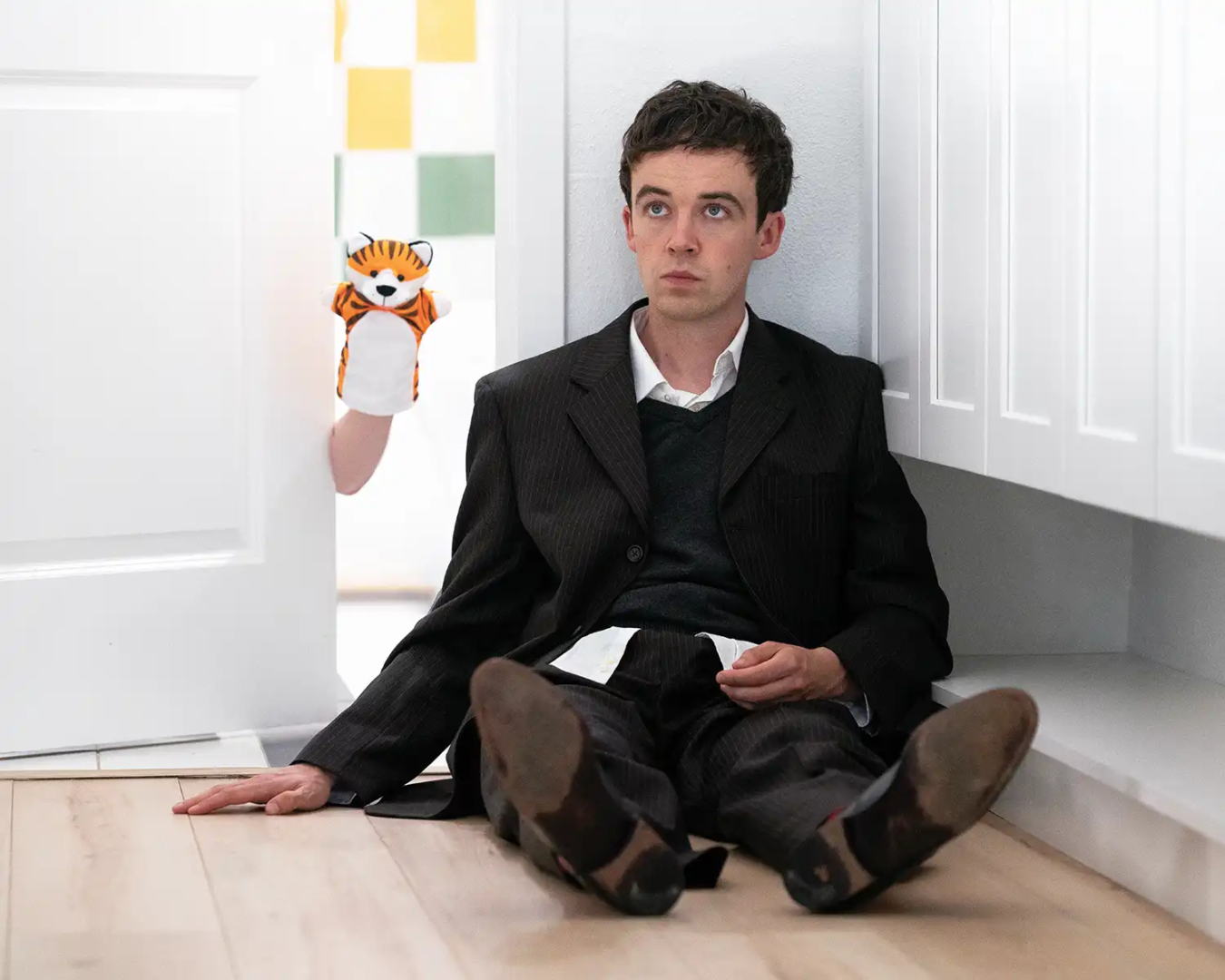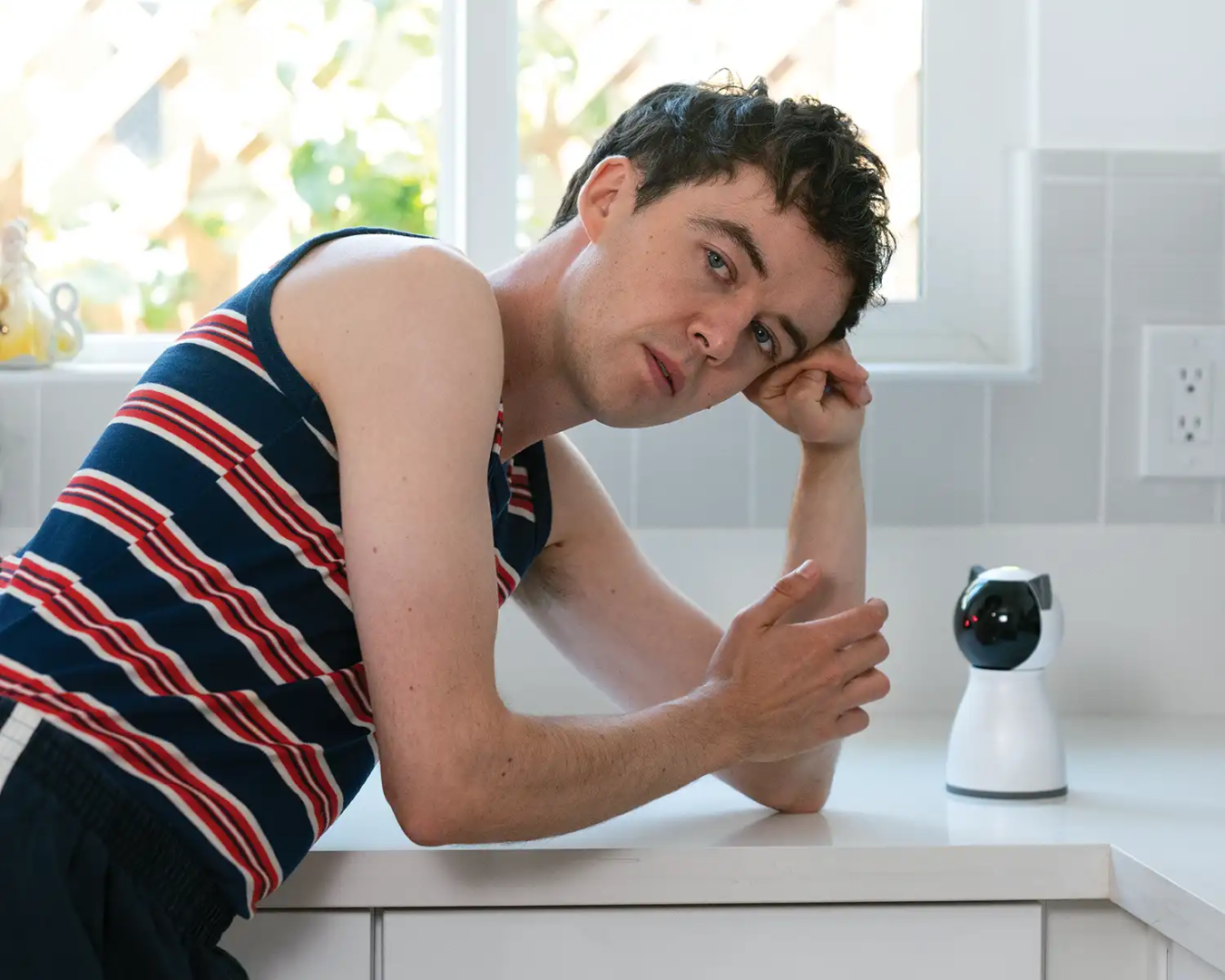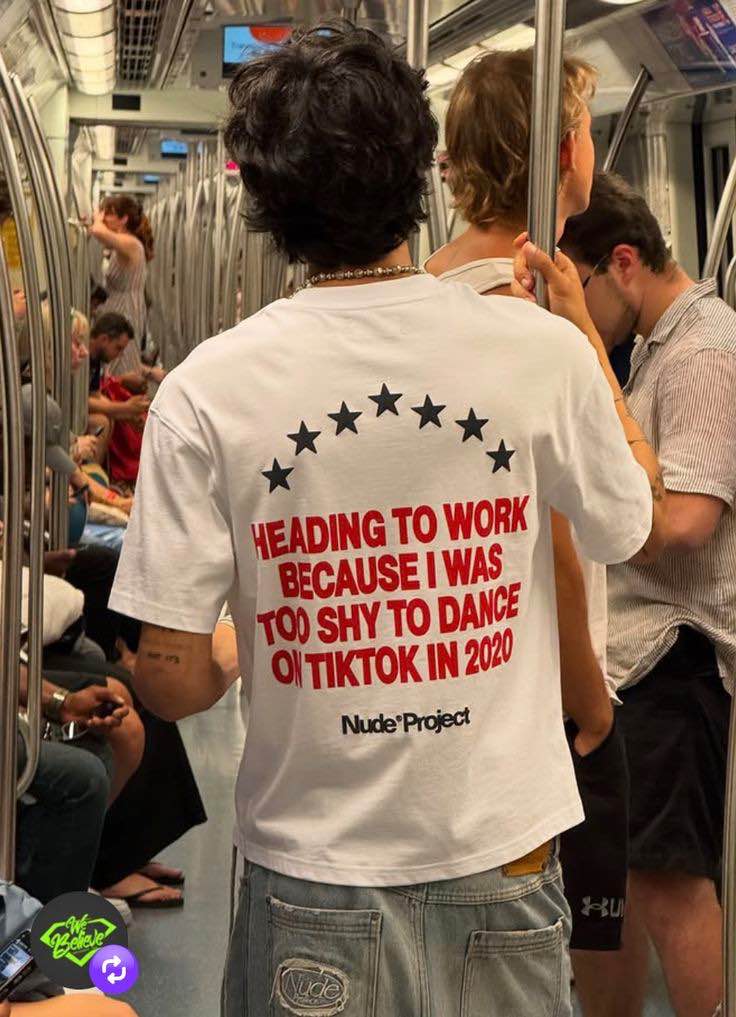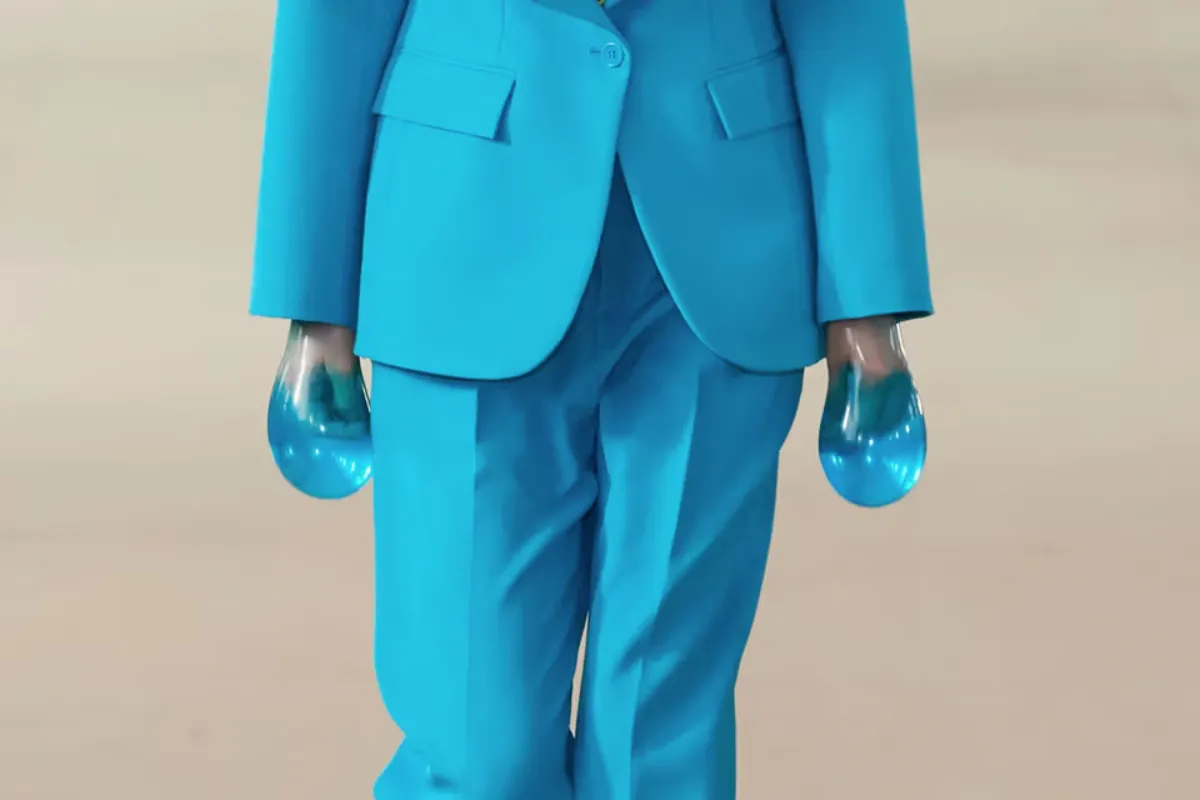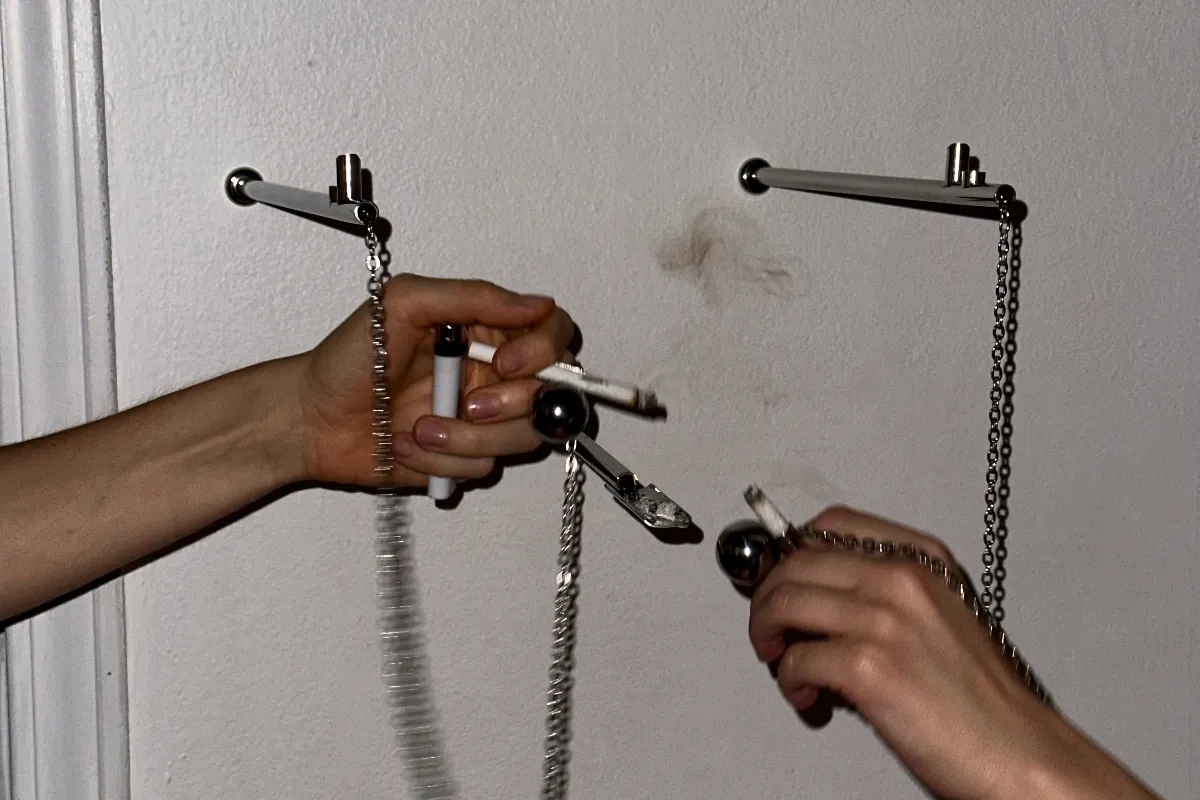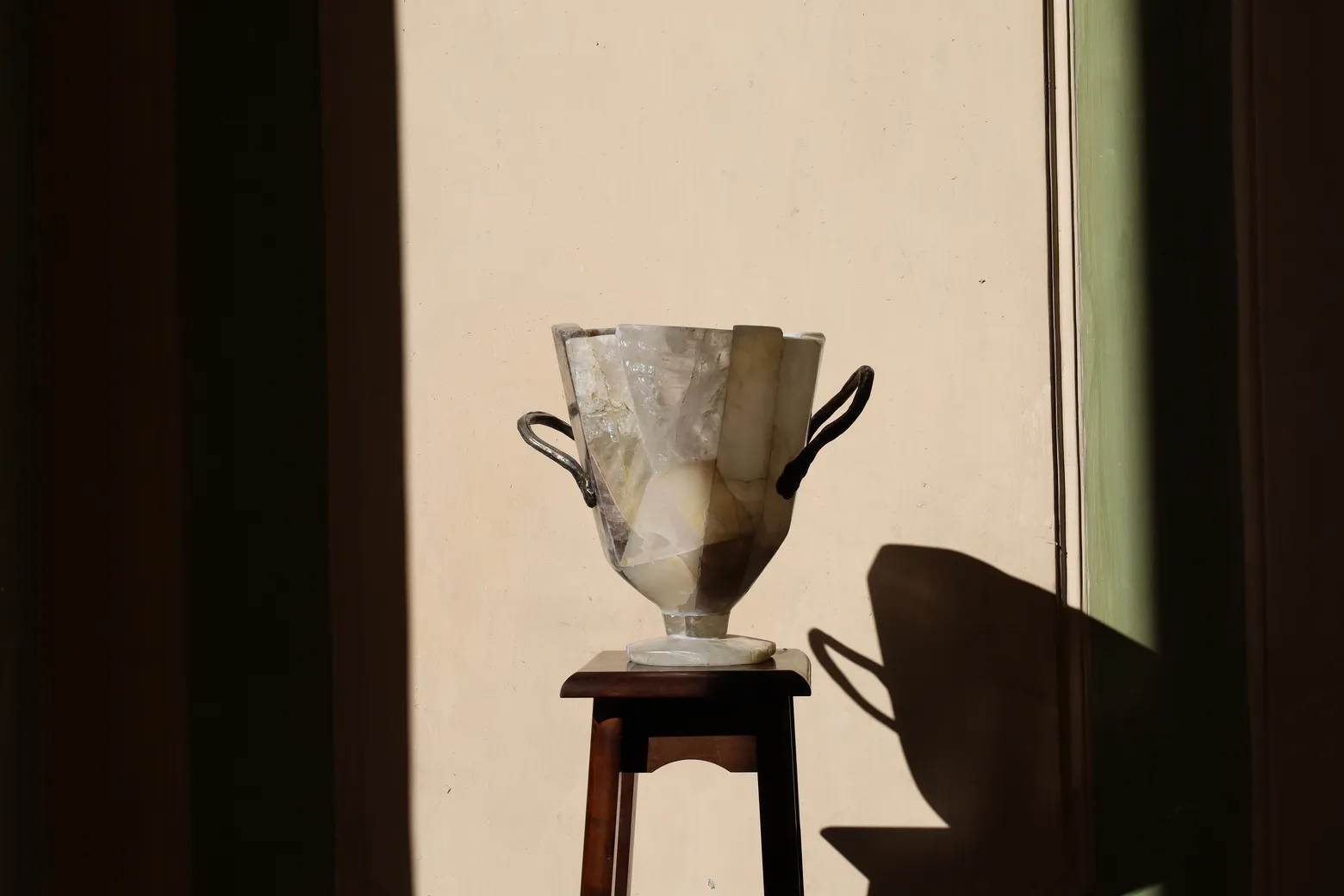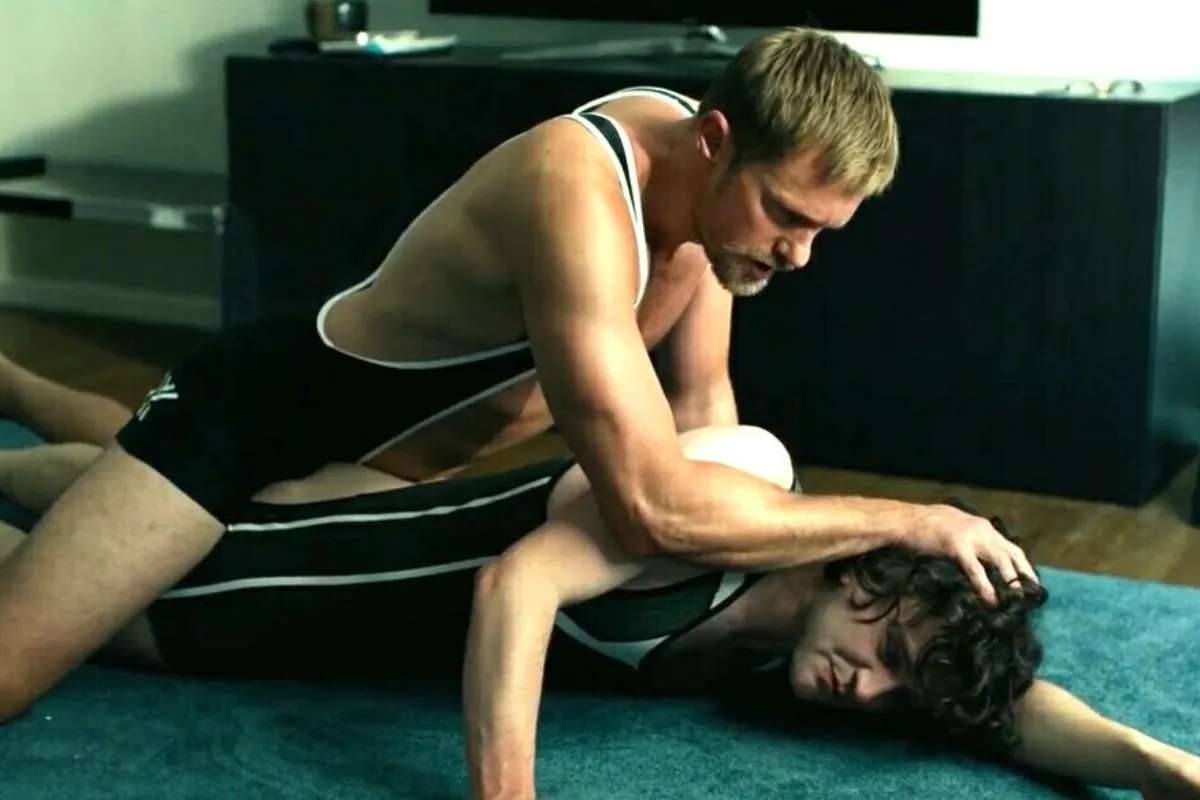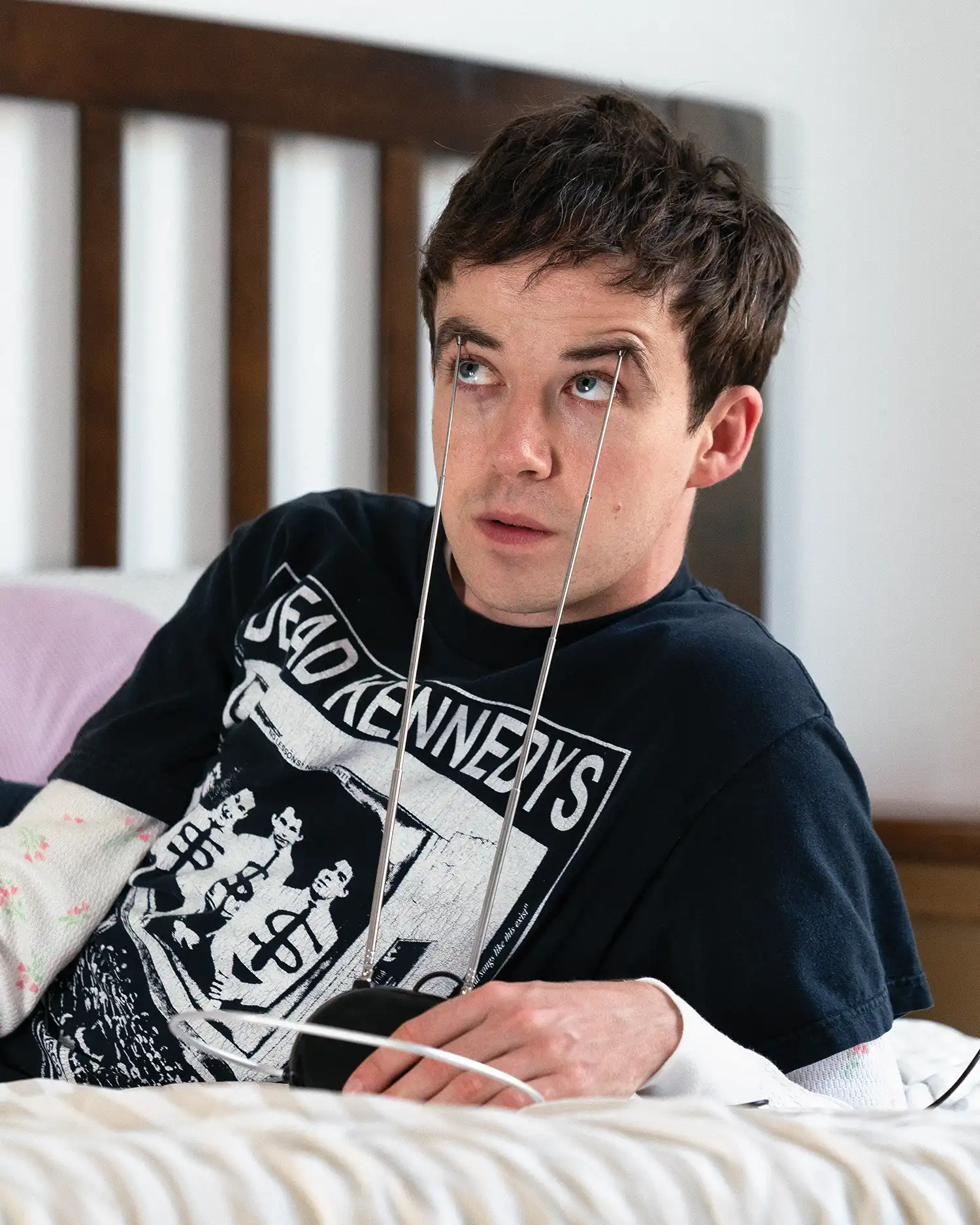
Alex Lawther on “Alien: Earth” – Cult teen sociopaths and the softness of survival
From Black Mirror to The End of the F**ing World and now Alien: Earth, Alex Lawther reflects on fear, AI, and playing care in a militarized future
Alien: Earth, streaming’s mega-budget future, and Lawther’s return to fear
If we skip from 2013 to the present day, it becomes easy to forget just how many nimble productions changed our expectations—of what we watch, how we watch it, and how it’s talked about. Today, the largest streamers have shifted course, investing heavily in established franchises. Amazon recently acquired the James Bond intellectual property for something around a billion dollars. FX’s Alien: Earth, their latest mega-budget SVOD project, debuts in early August. With a budget of over $250 million, it’s expected to rank among the five most expensive TV seasons ever produced. The scale, polish, and ambition of the show align more with Hollywood mega-blockbusters than with traditional television—even accounting for inflation, it is reportedly more expensive than any previous Alien film. FX releases two episodes on August 12, 2025, followed by one per week over the next six weeks. Here, the model has shifted again: rather than full season drops, flagship shows return to the weekly serial format. The “water cooler show” didn’t die—it was just resting as our new media overlords consolidated power.
In Alien: Earth, Alex Lawther again plays a familiar role: the frightened and self-aware young man. In the years since The End…, the media landscape has rapidly and rabidly shifted. It’s telling, then, that the kind of character Lawther once pioneered still holds weight—even now placed against far more expensive backdrops. In our interview, he reflects on the “softness” of this new role and how it conflicts with the rough and violent world of Alien. Throughout the series, sleek and sterile surfaces collide with the dirtiest and most frightening substances and creatures. At Lampoon, we’re drawn to that contrast—the fascistic impulse for cleanliness clashing with the bodily fluids and emotional chaos of our fragile species.
In Alien, that metaphor becomes physically literal. In Ridley Scott’s first film, horror unfolds as the titular villain—an “oily, slimy creature,” in Lawther’s words—prowls a hyper-futuristic spaceship. In a promethean struggle (one Scott would make explicit in Prometheus), human characters watch their hermetic world unravel under the pressure of alien biology. The new series asks existential questions that haunted previous Alien films yet now feel more urgent. What if we cured the dirtiest human conditions—death, decomposition? In Lawther’s performance, he becomes a litmus test for those conditions, raising the question: if a world becomes too clean, can it still be human?
Alex Lawther presents Alien: Earth to 6,500 fans at San Diego Comic-Con
Isaac Crown Manesis: [Following a series of connection issues] We’re going to be spending some time discussing technology—fitting to start with some problems of our own.
Alex Lawther: I just got back from San Diego, from Comic-Con, where we presented Alien: Earth. We shared the first episode with a crowd of 6,500 people—I’ve never done anything at that scale in theater or film before. It felt like an appropriate space for it. They were able to boost the sound so much that it almost felt four-dimensional. There was real caretaking by Dana Gonzales, who’s the lead DP of the series and also directed one of the episodes, to make the thing feel cinematic. Of course, it’s a different form—we’re in TV world—but it felt like a theatrical experience. Have you ever been to Comic-Con?
I.C.M.: Tell me about engaging with a franchise that has such a deep and robust fandom, where people feel a strong sense of ownership over the work. I can imagine that in a venue like that, where you’ve brought together all the people with the strongest opinions about the franchise, it must be quite intense.
Alex Lawther: It’s this unusual situation where the viewers of a piece often know more about its lore than some of the people involved in making it—me included. I didn’t feel like it was combative; they were like, “Welcome to the club. We want to see your contribution.” Rather than questioning how our project fits in, they met us with open arms and asked, “Okay, so how do we engage with this?”
At the top of Noah Hawley’s many talents is the ability to take original source material and expand—and expand and expand—allowing his imagination to go wild. As a viewer, I find it satisfying to have both the comfort of a beloved franchise and also an imaginative, playful person leading us into a new story.
An interview with Alex Lawther on preparing for Alien: Earth and building a sibling dynamic
Alex Lawther: I went back and watched the first one—Ridley Scott’s Alien—because I wanted to live in the texture of that film again. It’s quiet for the first half hour—the characters are eating breakfast cereal and chatting. You’re just waiting for the alien to arrive. And when it does, it’s this oily, slimy creature moving through this fascinating physical world.
Knowing what was at the root of my character’s story in terms of production design, costuming, and the overall feel of the world was exciting. In terms of actually preparing for the role, the key was meeting Sydney Chandler, who plays my sister, Wendy, in the show. My storyline exists in tandem with hers. The character I play only fully made sense once I’d met Sydney.
Some people in the show are playing trillionaires, some are scientists. I’m playing someone who is, first and foremost, a sibling and a human being—someone trying to ensure that his sister remains human as well. I’m doing everything I can to preserve that, to promote the good of humanity.
Playing a litmus test for humanity in an age of artificial intelligence
I.C.M.: Humanity in the face of the Goliath. The emotion of fear comes through in several of your roles. Your character is often someone who doesn’t accept things as normal—even when they’ve quickly become naturalized. What does it mean to play those roles in the face of our moment’s rapid technological developments?
Alex Lawther: Returning to the tyranny of AI. I found this quote while we were shooting—Publius Terentius Afer, Terence, the ancient Roman playwright, wrote something along the lines of “I am human. Nothing human is alien to me.” It struck a chord with how I understood my character’s job: to be a litmus test for humanity. That made what could otherwise be a passive role quite active. His antennae are always buzzing.
Maybe he’s talking to someone who is biologically human—like Samuel Blenkin’s character, one of the show’s powerful trillionaires—but his radar is saying: something’s off, something inhuman. Likewise with his sibling Wendy [Sydney Chandler], who oscillates between humanness and something else, he has to come to terms with the idea that even if she’s no longer fully biologically human, what remains in her is precious—and therefore still human.
That kind of defiance in the face of tyranny came up in Star Wars: Andor, too. In a different, more abstract, even Marxist way, I was also trying to defy the terror of a non-human entity—of the empire.
When performance meets political anger: Lawther on acting and the world’s broken systems
I.C.M.: Is that an emotion you find yourself considering in your non-actorly life now?
Alex Lawther: I remember doing a play called The Jungle, which was about the refugee and migrant camp in Calais, in the north of France, before it was demolished. That was the first time the work I was doing aligned with a building sense of anger I had about how the world is structured—the brokenness of the systems we live in.
I’ve been lucky in that sense. It gives me a lot of energy to play someone who is actively trying to change something. Whether or not you agree with your characters politically is one thing… inevitably, some of my outrage bleeds into the role.
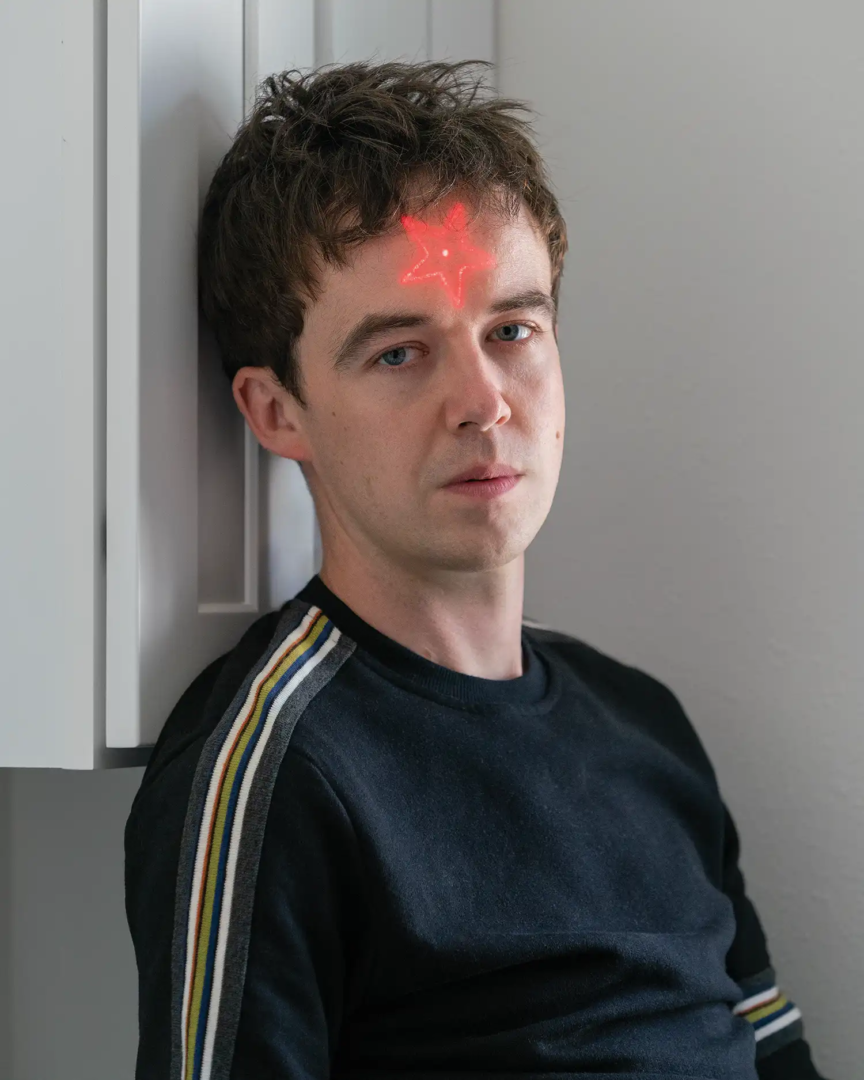
Lawther on the uncanny tension between AI, identity, and reality
I.C.M: In the middle episodes of the season, you end up operating within this uncanny middle ground—between humanness and technology. Is that a feeling you’ve experienced with AI chatbots?
Alex Lawther: I remember Noah [Hawley] was saying at Comic-Con that he started writing these episodes before ChatGPT existed—or at least before it was in its current form. There was this sort of precursing in the writing. But that uncanniness has now become a part of our everyday lives. The word “uncanny” was baked into every element of this particular Alien story.
There are a lot of different kinds of terror in Alien. There’s the body horror, of course, and alien terror. There are also these more subtle, uncanny terrors—like not knowing how stable the ground you’re standing on is. I don’t know if that’s something you can actively “play” as an actor, but I kept it in the back of my mind during scenes with Sydney’s Wendy. My character would often be looking at her and seeing someone who resembles his sister in personality and humor—but there’s always this tension, this undercurrent that it might not quite be her at all.
We sat with that feeling for six months of shooting. In the real world, we’re in a similarly uncanny time. These technologies are still in their infancy. For better or worse, we don’t yet know where they’re taking us.
The early days of the internet—it exploded, and now it’s the first thing we interact with in the morning and the last before bed. We just subsumed it into our lives. I wonder what that’ll mean for artificial intelligence. Maybe we’ll chat again in five years, and this will all seem so naïve.
Can emotion be played or must it be lived? Alex Lawther on instinct, intellect, and acting through fear
I.C.M.: Or I’ll chat with your AI replica?
Alex Lawther: And you won’t be able to tell if it’s me! He’ll be charming.
I.C.M.: Is that tension a stumbling block for you, or does it feel generative?
Alex Lawther: There’s only so much you can play through thought. I can overcomplicate things for myself. I spend too much time thinking—during a show that takes six months to make. With Alien, some of the easiest scenes to play were the physical ones. Being chased by a Xenomorph is quite scary, so those ended up being some of the strongest moments of performance because it was just my limbic system responding.
There was a scene in Black Mirror where my character pulls a gun on someone and then pisses himself. They attached a little piss bag to my leg, and I could feel it trickling in my jeans—there was kind of nothing to play.
I like to write, and I’ve started directing short films, which is good for me because those mediums reward overthinking, which can sometimes be an obstacle for me as an actor when I just need to be present. You can’t try to control too much. Ultimately—in film and television—you do the thing, and then it goes into the hands of another artist: the editor, the director, or, if it’s a big-budget show, the post-production supervisor. They take the mosaic pieces and turn them into something else.
Writing from the leftovers: how Lawther’s directing emerges from feeling, not thought
Alex Lawther: I’ve started to appreciate the moments in work when I’m forced to think a little less and just respond. With acting, you’re asked to engage with someone else’s thinking. With writing and directing, it’s all the other stuff I haven’t been asked to engage with—it’s the odds and ends, the leftovers. It’s also more personal, because what I write usually starts with a vague kind of feeling rather than a fully formed idea.
It becomes about finding a shape for that feeling that’s coherent enough to build a story around. Coming out of lockdown, I had a general feeling of loneliness—a kind of ache around connection, or the lack of it. I wrote something about a woman who lets in a lodger, and this chaos begins to spread through her day-to-day life. Somehow, a middle-aged landlady became the tight physical shape for expressing something about feeling stuck—and feeling lonely.
Alien cleanliness and the desire for filth: Lawther on Garth Greenwell and sleek sci-fi horror
I.C.M.: Our Lampoon issue is thinking about cleanliness versus dirt. In Alien, there’s a split between the cleanliness of technology and the messiness—sometimes the evil—of how people use it. This is to say nothing of the show’s visual language, like a Xenomorph charging down a sleek spaceship hallway. I’ve been thinking about the elegance of large language models versus the messy and dirty ways people have already used them. Can technology be cleaner and purer than the people who make it?
Alex Lawther: I was moved by this book Cleanness by Garth Greenwell. He articulates this well—the more we strive to be clean, the stronger the opposing desire for dirt and filth grows within us. He explores that through the story and body of a gay man in Bulgaria, through his life and his love affairs. What he’s saying is that these things—purity and filth—are inseparable. They’re two sides of the same coin.
That idea—the cleaner we get, the more we desire the opposite—is something Alien is exploring. We have this deep, primal fear of parasites, growths, fungi—it’s visceral. And in response, the world becomes increasingly sleek and sterile, looking more and more like an Apple Store. I’m sure some clever psychoanalyst—Jung, probably—has spoken about this in a way that’s prescient to our TV show.
Care versus violence: Lawther on softness, masculinity, and being a medic in Alien: Earth
I.C.M.: Is roughness an active thing that you find yourself pursuing, or is it just an inevitability of human life?
Alex Lawther: There’s something grown-up about filth, in the same way there’s something quite childlike about cleanliness and smoothness. I was lucky with Alien—I enjoyed, and felt a little mischievous, playing someone who exudes softness in such a violent world. My character is mistrusted precisely because of the softness and care he has to offer. Though care is not always the opposite of roughness, in the world of Alien, roughness tends to translate into violence.
It’s a masculine, militaristic, codified world. My character brings softness—both physically, in the way he moves through space, and in terms of his role. He’s there to provide care, both as a medic and as a sibling.
At one point, he’s trying to care for someone who no longer needs it—someone who has grown in ways that are beyond his wildest imagination. He’s at a loss. Where do you place that care when it’s no longer needed? Or rather, when it no longer fits the gap of what his sibling needs? That is the core tension of his character throughout the series. It was curious to be the guardian of care in a series that, at its heart, is about a violent extraterrestrial killing machine.
Alex Lawther’s streaming-era rise: from Black Mirror to cult teen sociopaths
Alex Lawther’s career began with defining roles during the early years of the streaming boom, namely Shut Up and Dance from Black Mirror (2016) and The End of the F**ing World (2017). Lawther’s broadly expressive style and sensitive handling of prescient themes has made him an in-demand actor, working across everything from mega-budget sci-fi to indie arthouse. He has found a niche playing offbeat, left-of-center characters—often quirky, usually with a unique perspective.
His first major role came on stage in Sir David Hare’s South Downs (2011, restaged in the West End in 2012), which earned him critical and industry attention. His breakthrough in film followed shortly after in 2014, when he played a young Alan Turing opposite Benedict Cumberbatch’s Oscar-nominated portrayal of the older Turing in The Imitation Game. A couple of years later came Lawther’s starring—and perhaps most widely known—roles. In Shut Up and Dance, a critics’ and audience favorite from Black Mirror’s third series, Lawther plays an extorted teenager in a high-stress, heartrending tragedy that epitomized Black Mirror’s tone. He explored the extremities of teenage loneliness, internet-driven psychosis, moral decrepitude, and the pervasion of fear. In another wildly popular Netflix project, The End of the F**ing World*, Lawther plays a high school-aged self-proclaimed sociopath in a role that oscillates between rakish and disquieting. Though defined by a different set of moral quandaries, Lawther’s ability to play awkward charm against lugubrious morality was distinctive. His character helped set a template that many others have since followed.
The End of the F***ing World and Netflix’s prestige television explosion
The End… was part of the mid-2010s sweep by Netflix to corner the prestige and indie television markets. Following early forays into original content (House of Cards and Orange Is the New Black in 2013), Netflix made the rapid transition from streaming distributor to power broker in the nascent SVOD (subscription video on demand) industry. Just three years later, and one year before The End… premiered, Netflix had become more prolific than any other streaming or cable service, releasing an eye-watering 126 original series and films in 2016.It was in this context that Lawther’s first lead roles appeared.
The moment was not unlike the American New Wave movement of the mid-1960s to early 1980s: streaming services took chances on new voices and left-of-center stories. They created new niches and changed the way a project entered the world. Rather than compete for scarce primetime slots, SVOD platforms could launch content simultaneously and let audiences determine success. Despite a crowded pack, The End… drew critical acclaim for Lawther and co-star Jessica Barden’s acid performances, as well as for the series’ freshness. Friends mention that it stood out as provocative, showing darker emotions and a more rigorously artistic form than prior teen dramas. It has endured as a cult show and critical darling of its time.
Isaac Crown Manesis

TEAM
talent Alex Lawther, photography Alyssa Kazew, styling Mia Roylance, grooming Kelly Peach, photography assistant Will Koning, thanks to Tapestry London
All clothes vintage from the stylist’s archive
